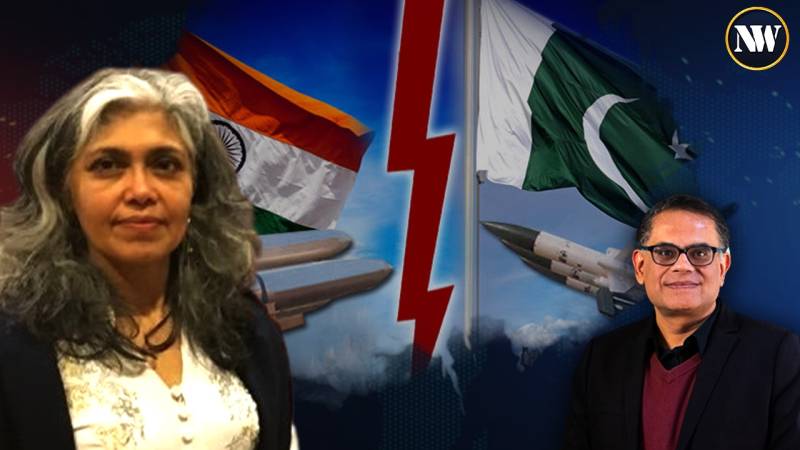Beena Sarwar, a renowned journalist, author, and activist, stands at the forefront of those who tirelessly work to bridge gaps and foster understanding in the South Asian region. Her initiatives, the South Asia Peace Action Network (SAPAN) and Supper News have become beacons of hope in the quest for a more harmonious South Asia.
The roots of SAPAN can be traced back to a simple yet profound question posed by one of Beena's mentors: If France and Germany can put aside centuries of enmity to be part of the same European Union, why can't India and Pakistan, two nations with a shared history and cultural affinity, do the same? This query sowed the seeds of an idea that would eventually blossom into a powerful movement.
For years, Beena had been a tireless advocate for India-Pakistan peace. She recognized the cyclical nature of progress and setbacks in diplomatic efforts and saw the need for a fresh approach. The concept of regional solidarity resonated strongly with her, a way to forge a narrative of unity that wasn't contingent on external influences.
In the spirit of unity, Beena gathered over 80 activists from across South Asia for a seminal meeting. The participants, hailing from diverse backgrounds and nationalities, convened to discuss a vision of a peaceful and interconnected South Asia. The outcome was not just a resolution, but a shared commitment to fostering people-centered policies and soft borders, allowing for easier travel and trade within the region.
SAPAN's journey didn't end there. Monthly discussions, featuring prominent speakers and addressing an array of topics, became a platform for dialogue and collaboration. These discussions transcended borders, bringing together individuals who shared a common goal: to create a peaceful South Asia that could coexist harmoniously.
While geographical distances and time zone differences could have been barriers, the online world became a lifeline for SAPAN. Volunteers, many of them night owls in the South Asian region, dedicated themselves to the cause. The enthusiasm and energy that emerged from these interactions were undeniable. People were weary of the violence, aggression, and hostilities that have marked the region's history. They yearned for change, and SAPAN provided a platform for them to come together and drive that change.
Beena's ability to forge connections and create an atmosphere of camaraderie among participants from various backgrounds played a significant role in SAPAN's success. Friendships were formed, and relationships were nurtured, showing that unity knows no boundaries.
One of SAPAN's defining features is its commitment to exploring a diverse range of topics beyond politics. From sports to road safety, public health to labor rights, the network has engaged in conversations that go beyond traditional narratives. These discussions reveal the interconnectedness of issues and highlight the potential for collaboration across borders.
The network's exploration of themes like music, art, and activism has shattered stereotypes and illuminated the rich tapestry of South Asian culture. Through these conversations, SAPAN has demonstrated that peace is not merely the absence of conflict but the presence of understanding, empathy, and cooperation.
A natural extension of SAPAN's endeavors, Supper News emerged as a vehicle to amplify voices, stories, and solutions. Beena recognized the importance of spreading information and ideas in an accessible manner. Supper News became the bridge between discussions and a wider audience, delivering well-documented reports that captured the essence of SAPAN's work.
Supper News isn't just about reporting events; it's about highlighting the common threads that weave through the fabric of South Asia. It's about showcasing the stories that underscore our shared humanity and the challenges that require collective effort. Each report is a step toward breaking down barriers and building bridges. As SAPAN and Supper News continue to grow, the impact they have made is undeniable. They have provided a space where people from different backgrounds can engage in meaningful conversations, where ideas are exchanged, and where solutions are sought. The initiatives have shown that individuals have the power to drive change, even in the face of seemingly insurmountable obstacles.


